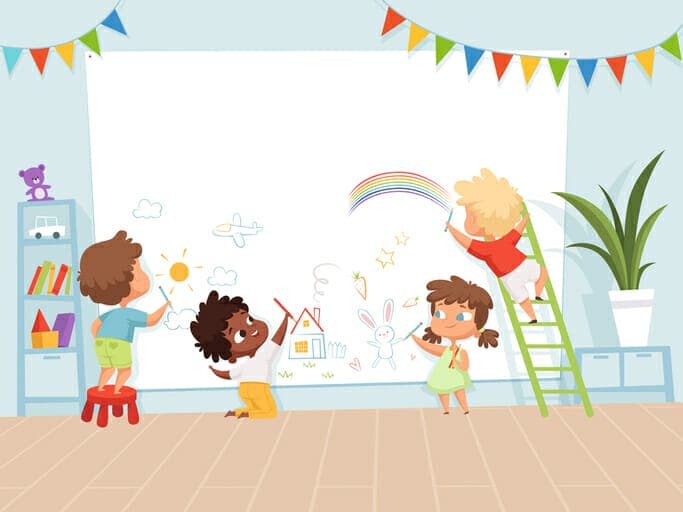
Have you ever wondered why we do the things we do? I wonder this all the time. What drives me to do some of the things I do? Sometimes I stop in my tracks after I’ve done something, shake my head, and think to myself “why on earth did I just do that?”. We, as adults, know that for every action there is either a reaction or a consequence. This is something we learn as we grow up. As adults, we can hear in our minds our parents chiding us saying “you shouldn’t do that” or “you should hurry up and get that task finished”.
Where does all this inner conversation lead us and how can we change it?
Let me tell you a story.
A few weeks ago, I was talking with my son on the Portal. He was in his kitchen husking corn. The baby was sitting in the highchair. My 3 ½ year old granddaughter came running into the kitchen carrying a book. She said, “Read to me, daddy”. My son turned to her and said “I will in a little while. Right now, I’m husking corn for dinner and talking with DeeDee (that’s my grandmother nickname)”. My granddaughter left the kitchen briefly. I saw her come back into the kitchen and sit on the floor. I couldn’t see what she was doing. A few minutes later she called to her father and said, “look what I did, Daddy!”. Well, she had taken a marker and colored on the wall.
His reaction was to tell her to clean the marker off the wall. He continued his conversation with me until it was clear he had to attend to his daughter.
My granddaughter learned that her action – coloring on the wall – did not get the reaction she wanted. She learned about consequences.
In the organizing world we don’t often stop to think about actions and reactions or consequences. Let’s take a minute and ponder this topic.
Why do we do what we do with laundry?
A common problem I encounter with clients is piles of laundry. The laundry is either in process, piled around the family room waiting for someone to fold, or dumped on the laundry room floor. We know that when the laundry comes out of the dryer something needs to happen to get it into the closets and drawers of the people to whom the clothes belong.
There are several consequences that result from piling the laundry in the family room.
- Clothes are too wrinkled to wear
- The family room can’t be used the way it is intended
The solution is to allow time to put the laundry away. We know that it takes time to wash and dry the clothes, but we rarely factor in the time to fold and put the clothes away. In reality, if the load is folded when it comes out of the dryer, instead of being piled and accumulating, it can be put away quickly. In fact, it only takes 10 minutes or less to fold each load.
Fold and put away each load of clothes as it comes out of the dryer to avoid piling clothes in the family room.
If you don’t want to be responsible for everyone’s laundry then either teach the others in the family how to do their own laundry or, if they are too young, involve them in the process.
Apply the same logic
We can apply the same logic to piles of dishes, papers, errands, and almost anything else you can think of that bothers you around the house.
We tell ourselves in the moment that we do not want to take the 5 to 10 minutes to do what we know (and what our inner parent is telling us) we should do. But we don’t want to. We tell ourselves we will do it later. But we all know that later is not a time. The consequence is that things pile up.
Here is another solution to do the things we should do.
Assign a day and window of time to them.
Ask yourself when you would like to do this task. You know it must be done. If you don’t tackle it, chances are good that more will accumulate. Maybe you don’t want to set a specific time to do the task. Consider assigning a block of time like before lunch or after dinner. If you don’t get it all done, no worries. You can do it again another day.
Do you tell yourself that you don’t care about the laundry, the dishes in the sink, the errands that are left undone, the piles of papers?
Think about the consequences
Ask yourself why you do the things you do? What is it about the laundry, the dishes, the errands, or the papers that frustrates you? Is it because you hear your parents telling what you should do? Are you being the naughty child and avoiding these tasks? Maybe it’s because you think you don’t have time to do it all perfectly.
If you’d like some help and guidance in figuring out why you do what you do, consider joining the Clear Space for You clutter support group. Jonda Beattie and I will prompt you to come up with answers to these questions and more.
Diane N. Quintana is a Certified Professional Organizer® ,a Certified Professional Organizer in Chronic Disorganization®, Master Trainer and owner of DNQ Solutions, LLC and co-owner of Release●Repurpose●Reorganize, LLC based in Atlanta, Georgia.